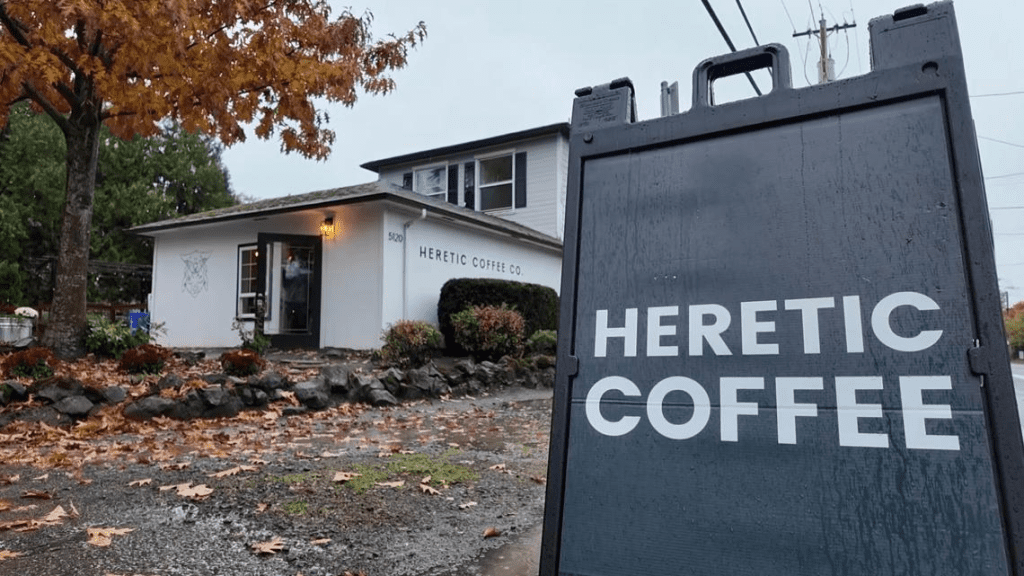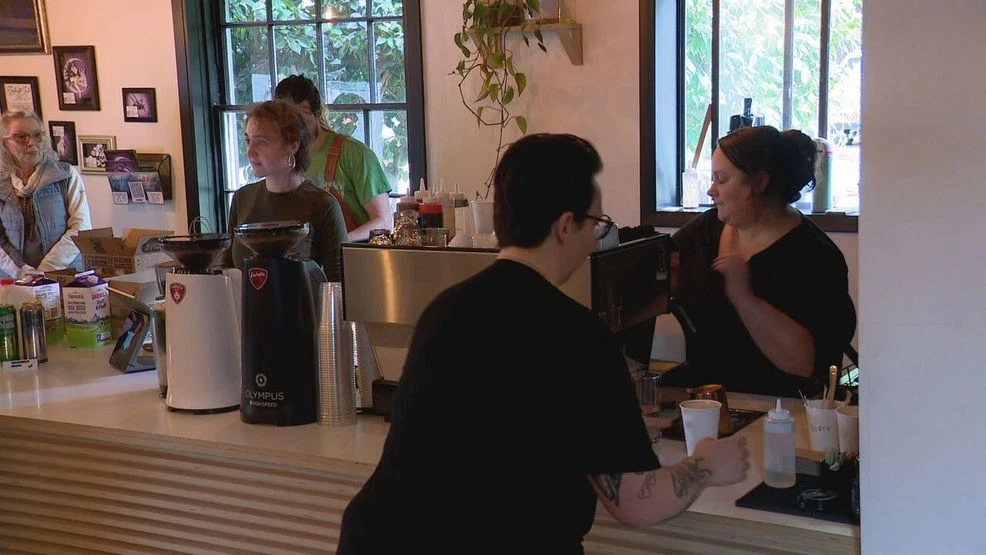A Quiet Request That Sparked a Movement
A young boy steps into a Portland café, his stomach empty, hoping for just one thing, a morning meal. His voice is soft. The impact of his question, however, is anything but.
Josh White, the owner of Heretic Coffee, didn’t hesitate. When the 11-year-old asked if he could receive a SNAP breakfast early because his family couldn’t afford food, White instantly said yes. “There was this bit of rage inside of me,” White told ABC News. “We tweeted out saying, ‘It’s open now, if you’re hungry, don’t go to bed hungry tonight.’”

From One Kid to a Community Lifeline
Within days, the effort spread beyond the café counter. Anyone who spoke the simple phrase “SNAP Breakfast” received a free breakfast burrito and coffee, no ID, no forms, no questions. Half the people using the code were children.
“The customers feel seen,” White said. “We don’t ask for any proof… The world needs to understand these aren’t just adults. These are kids who need to eat.”
The community responded with overwhelming generosity. Donations poured in from across the country, quickly surpassing $300,000. White told ABC News, “We didn’t even have a donation page at first… after seven days, we’re actually nearing $350,000.”

Why Families Are Struggling Right Now
This act of kindness comes at a moment of national confusion around SNAP benefits. Interruptions in federal funding and unclear guidance in November 2025 left families unsure if their meals would be covered. Court orders, partial allotments, and conflicting notices created gaps—gaps that left children vulnerable to hunger even when benefits were technically active.
Research published in AJPH shows that families with young children facing SNAP reductions experience a significantly higher risk of food insecurity.
For parents, even a day without meals is stressful. Stigma makes that stress worse. That’s why Heretic Coffee’s “quiet ask” matters: families can get fed without fear of embarrassment or interrogation.

Dignity in Action: The Power of a Code Phrase
Studies on food insecurity show that lowering barriers to food access doesn’t just fill stomachs, it preserves dignity and psychological safety. Families Rising notes that removing forms, ID checks, and complicated verification aligns with trauma-informed practices and helps children feel more secure.
Heretic Coffee’s model is simple:
One phrase. One meal. No questions asked.
A low-barrier approach any community can replicate to ensure no child leaves hungry.
If Your Family Needs Food Today
Parents don’t have to wait for help:
- Call 211 or a national hunger hotline for immediate meal and pantry locations.
- Ask your child’s school about mid-term meal programs, many have emergency funds.
- WIC supports pregnant parents, postpartum parents, and families with young children.
- If an older child is picking up meals, set up safe routes or buddy systems.
Keeping requests simple and stigma-free helps ensure children actually eat, and caregivers don’t face unnecessary judgement.
How Communities Can Adopt This Model
Heretic Coffee’s approach is easy to replicate:
1. Start Small
Offer one meal during set hours using a discreet code phrase.
2. Invite Neighbors In
Local businesses or residents can sponsor meals.
3. Centralize Donations
Partner with nonprofits for transparent financial oversight.
4. Build Trusted Referral Networks
Schools, PTAs, pediatricians, community groups, and mutual-aid networks can quietly connect families to meals.
Josh White is already partnering with under-resourced mutual-aid groups, creating a blueprint that any community can follow.
Helping Kids Ask for Assistance
Teaching children simple, safe scripts can empower them to request food at school offices, cafés, or community spaces. Parents should set age-appropriate boundaries, coordinate pick-ups, and use buddy systems to ensure safety.
How You Can Help Today
1. Donate
Support school meal funds, community pantries, or direct-aid programs.
2. Start Your Own Discreet Meal Service
Gyms, studios, shops, or cafés can adopt a code-phrase model.
3. Amplify Quietly
Share information about access points or code phrases without drawing attention to families in need.
If collecting donations, maintain clear accounting and ethical oversight.
Back to That Morning in Portland
One child asked a simple question.
A kind answer followed.
A warm burrito, a full stomach, and a city awakened to how dignity and compassion can feed more than hunger. They can feed hope.
If you see a need in your neighborhood, start small. A single meal, a shared phrase, and a moment of care can change everything.
